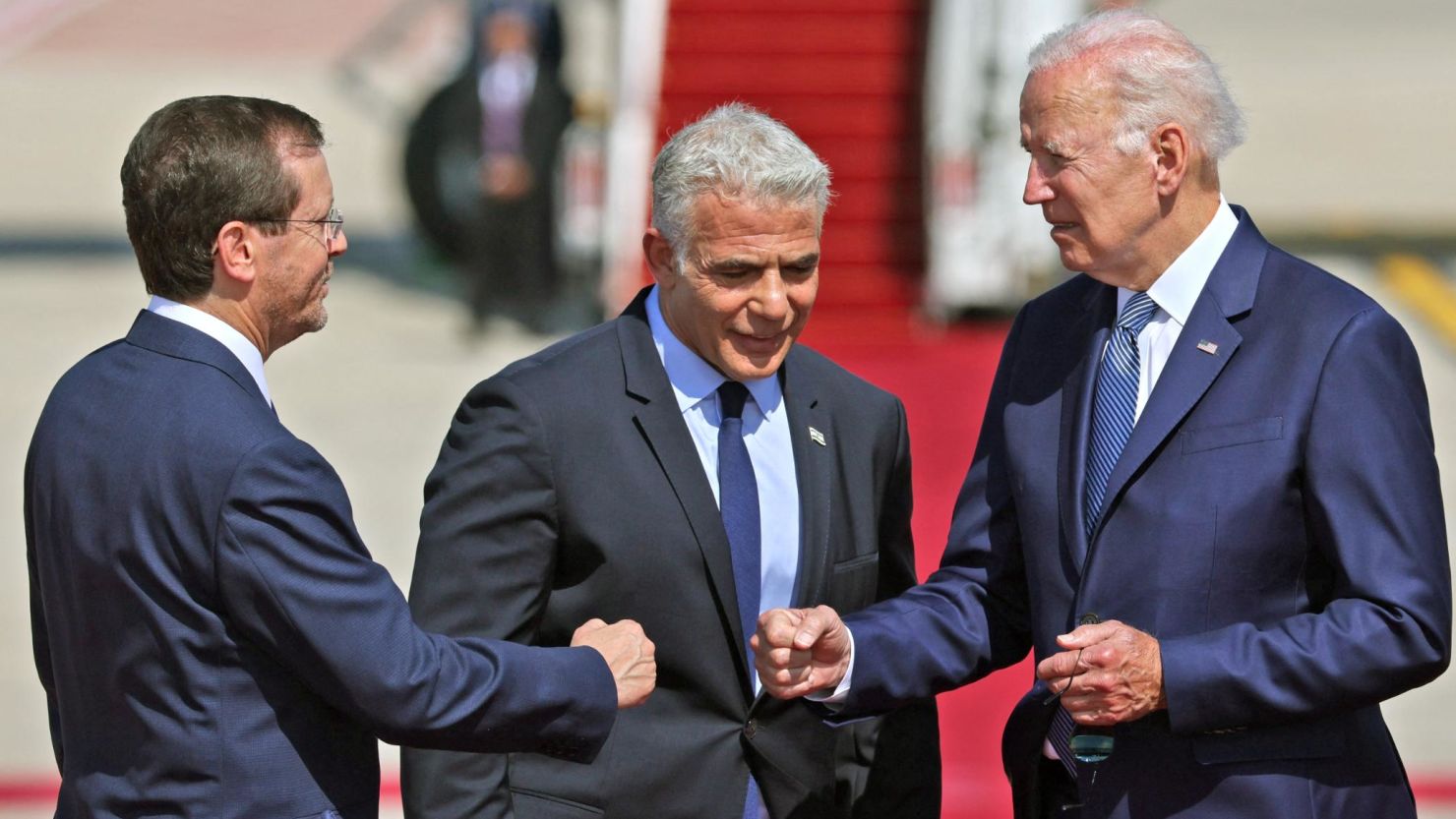President Joe Biden was greeted in Israel on Wednesday by a row of Israeli leaders offering open palms to the President.
Biden offered a closed fist in exchange.
The President doled out fist bumps and pats on the shoulder to the delegation stationed along the red carpet at the foot of Air Force One, which the White House said was part of an effort to reduce physical contact amid the rapid spread of a new coronavirus variant.
But only minutes later, Biden broke with the new effort – exchanging a hearty handshake with the former Israeli Prime Minister Benjamin Netanyahu, the current opposition leader. Biden later also clasped hands with a pair of Holocaust survivors at Yad Vashem.
The President’s half-hearted effort to reduce physical contact on his trip to the Middle East was a jolting switch for Biden, who has been shaking plenty of hands in the days leading up to his trip. And it raised questions about whether the White House was trying to avoid the optics of Biden shaking hands with Saudi Arabia’s Crown Prince Mohammad bin Salman, whom Biden will meet for the first time on Friday.
Biden has been facing questions about that meeting after saying as a candidate he would make Saudi Arabia a “pariah” for the killing of journalist Jamal Khashoggi. The CIA has alleged that Khashoggi was killed in an operation approved by bin Salman.
Pressed by reporters aboard Air Force One, White House press secretary Karine Jean-Pierre denied that was the reason for the attempt at reduced physical contact.
“We are saying that we’re going to try to minimize contact as much as possible. But also, there are precautions that we are taking because this is up to his doctor. BA.4, BA.5 is indeed, as we’re seeing, increasing. And we want to make sure that we’re taking those precautions to keep him safe and to keep all of us safe,” Jean-Pierre said, referring to emerging coronavirus variants.
Jean-Pierre said there was not a “new policy” around not hand-shaking but said Biden would be taking “extra precautions.”
“We’re in a phase of the pandemic now where we are seeking to reduce contact and to increase masking, as we’re standing here masked before you, to minimize spread,” the national security adviser Jake Sullivan said on Wednesday. “I can’t speak to, you know, every moment and every interaction and every movement. That’s just kind of the general principle we’re applying here.”
The BA.5 variant became dominant in the US last week, according to data from the US Centers for Disease Control and Prevention, and epidemiologists have warned of a rise in cases and hospitalizations in the coming weeks.
During a visit to Yad Vashem, Israel’s Holocaust memorial site, Biden also held hands with two Holocaust survivors. Biden went over to talk to 86-year-old Rena Quint and 95-year-old Gita Cycowicz at the conclusion of a wreath-laying ceremony in the Hall of Remembrance. Both women held on to Biden’s arm at different points in the exchange, which seemed to go on for longer than officials anticipated.
“Did you see the President hug me?” Quint said later. “He asked permission to kiss me, and he kept on holding my hand and we were told not to touch him!”
Biden’s attempt to reduce physical contact marked an abrupt shift.
On Monday, Biden shook hands with lawmakers and gun safety advocates at a White House event, and on Tuesday he was seen embracing and shaking hands with members of Congress at the Congressional Picnic.
And last week, Biden shook hands, embraced supporters and took selfies at an event in Cleveland.

